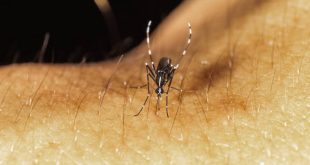Following Nigerian actress Ini Dima-Okojie’s announcement about her fibroids recurring after surgery, it’s important to understand what causes their recurrence.
Fibroids is a risk factor of infertility in women. Some form before the age of 35 and continue until menopause, resulting in a range of very incapacitating symptoms.
Common symptoms of fibroids
- Heavy periods: You might soak through pads or tampons more frequently than usual.
- Painful cramps: Intense cramps may occur during your period or even throughout your cycle.
- Pelvic pressure or discomfort: a feeling of heaviness or fullness in your lower abdomen.
- Longer periods: Your periods might last longer than a week.
- Pain during sex: Intercourse can be uncomfortable or even painful.
- Urinary issues: frequent urination or difficulty emptying your bladder.
- Abdominal changes: bleeding, swelling, or a feeling of tightness in your lower belly.
- Bowel issues: constipation, diarrhoea, or discomfort in your rectum.
Treatment for fibroids
There are three basic treatments for fibroids.
A hysterectomy is a type of fibroid surgery when the fallopian tubes and uterus are removed, depending on where the fibroid is located.
A myomectomy preserves the uterus by removing only the fibroids that are causing the symptoms.
A non-surgical procedure called Uterine Fibroid Embolisation (UFE) stops the fibroids’ blood supply, causing them to shrink and eventually die.
Can fibroids grow back?
According to the Fibroid Institute of Texas, the symptoms of fibroids usually get better following treatment; however, research indicates that depending on the method, uterine fibroids may recur or develop.
Here’s why they might come back:
- Microscopic cells: During surgery, some tiny fibroid cells might remain undetected. These can grow into new fibroids over time.
- Hormonal influences: Oestrogen and progesterone hormones can stimulate fibroid growth. Even after menopause, when these hormones decrease naturally, some women may still have residual levels that can trigger new fibroid development.
- Genetic factors: A genetic predisposition to fibroids can increase the chance of new ones forming even after surgery.
- The type of treatment: According to a study on myomectomy, up to 20 out of 100 women experienced regrowth of fibroids in the first few years following the treatment.
A woman’s future risk of developing fibroids increases with her age and the number of fibroids she had at the time of the treatment. Because myomectomies concentrate on eliminating pre-existing fibroids while sparing the uterus, they may have a higher recurrence rate.
On the other hand, hysterectomy—whether whole or partial—is uncommon since there is no uterus. The hazards involved in hysterectomy prevent many women from having one.
When compared to fibroid surgery, UFE does offer a rate of 90% success. Although it is possible, after this type of treatment, women’s fibroids usually do not grow back.
 Top Naija News – Nigeria News, Nigerian News & Top Stories Top Naija News – Nigerian Newspapers, Nigerian News. topnaijanews is a daily Nigerian newspaper covering Latest News, Breaking News, Entertainment, Sports, Lifestyle and Politics.
Top Naija News – Nigeria News, Nigerian News & Top Stories Top Naija News – Nigerian Newspapers, Nigerian News. topnaijanews is a daily Nigerian newspaper covering Latest News, Breaking News, Entertainment, Sports, Lifestyle and Politics.




